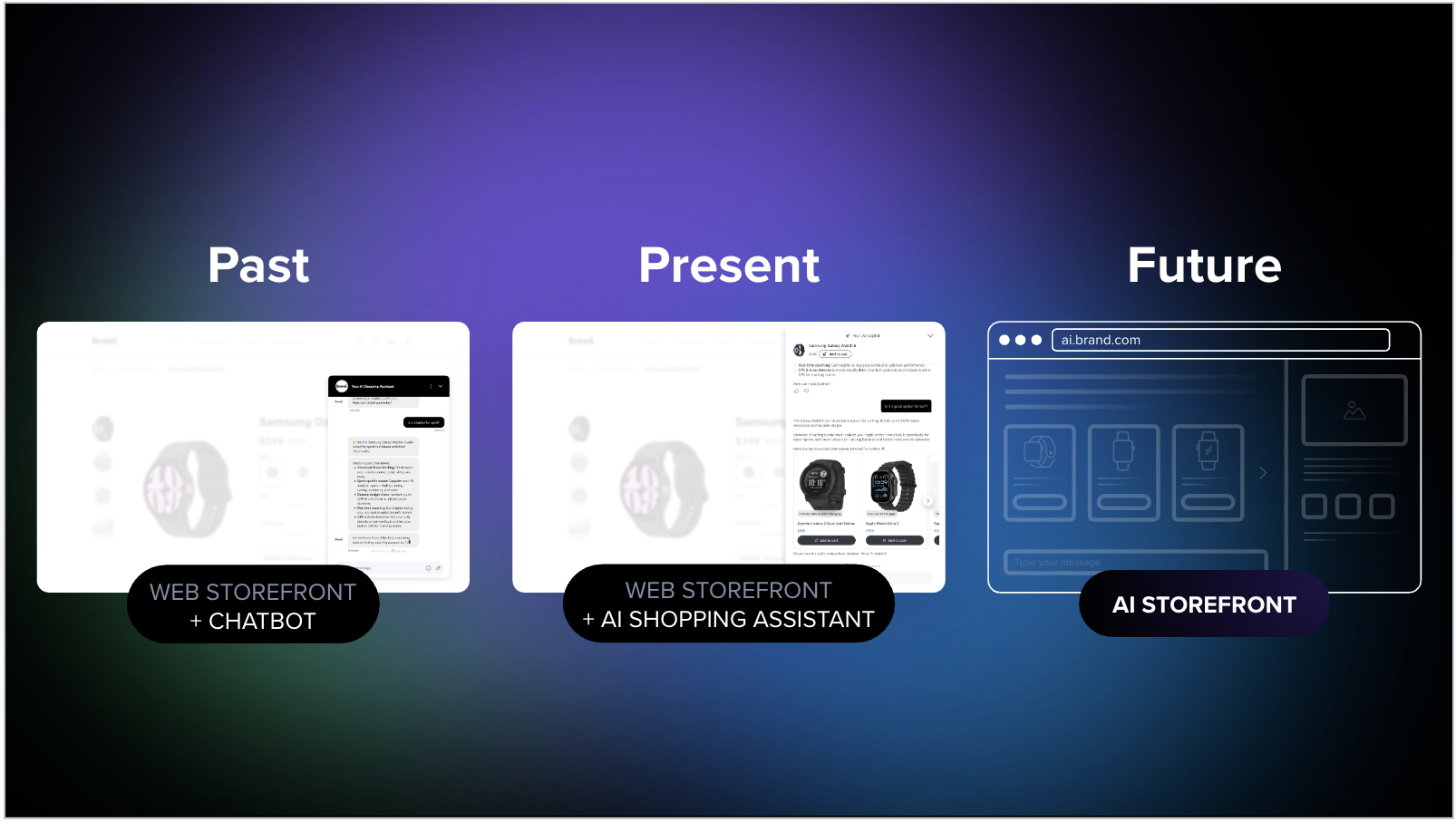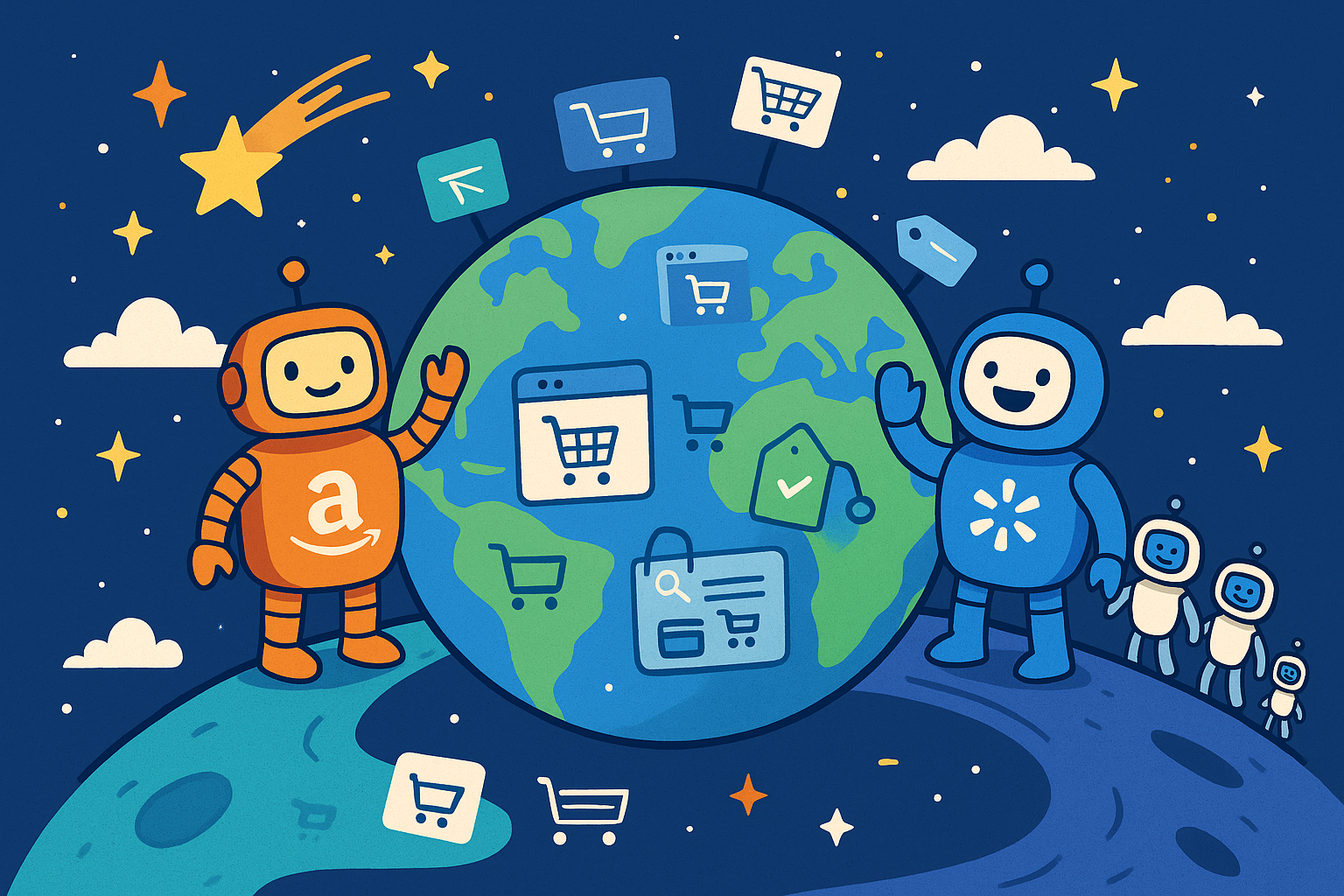5 Reasons Why New Digital Store Associates are changing the CX game
iAdvize

Conversation. A staple in our everyday human lives – no matter what age, culture, gender or occupation, we talk to each other. A good conversation is one that enables clear, successful communication between two or more parties, and this is no different in the retail world. If a consumer wants an apple and gets a banana, chances are they won’t be very happy – and they’ll be sure to let the whole internet know too.
Conversations happen every day in the retail sector – this is a given in 2019, where customers expect sales assistants to be attentive and available to help with their in-store queries. But what about online?
Online is often unfortunately quite a different story. In this increasingly competitive market, retailers must make it a priority to reach out to online shoppers to save the sale. Research commissioned by iAdvize has shown that, even in this hyper-connected era, customers want and need authentic human conversations when they connect with brands. More and more retailers in various industries are now aiming to digitise their own in-store sales associates so that their online customers can also benefit from a premium, personalised and authentic customer experience.
And here are the reasons why:
1. In-store sales representative are essentially brand experts
When customers have product-specific queries online and they can’t find the answer they are searching for, it’s easy for them to get frustrated and click “close the tab”.
This means a lost online sale opportunity simply because of lack of information, which could have easily been avoided. Chatbots and AI are a great technology to help with “FAQ” type questions and general delivery/order queries but when it comes to consumer pre-purchase anxiety, humans are in a much better position to respond to those queries accurately as they understand human emotions.
In-store sales representatives know the brand very well, they know the products and are able to make recommendations based on their expertise, which makes them a true asset for online sales too!
Recent B2B researchcommissioned by iAdvize shows that when it comes to offering quality human interaction, expert product insights and the levels of emotion demanded by modern omnichannel shoppers, it is clear that shop-floor employees are among the best placed to tick all the boxes.
2. Conversation = Conversion
This usually happens in-store, face-to-face – customers are more likely to purchase a product if they spoke to a sales assistant and feel reassured about their purchase. An authentic, personalised conversation is the best way to move potential customers down the sales funnel.
Retailers are replicating this success online by bringing various complex touch points together in one single place: conversation.
3. A great customer experience is a memorable one
Not only does conversation increase online conversion, if increases customer lifetime value as well. To put it into perspective – if a customer has a great, seamless experience with an online agent or brand representative, they will be more likely to repurchase and any pre-purchase anxiety they may experience shopping on the brand’s website will be obliterated. Why? Because they will trust the brand.
4. By bridging the online/offline CX gap, retailers are addressing a serious pain point
Losing online customers along the journey can be due to many different factors, but the ones that often come up are lack of (or too much!) information and uncertainty(linked to pre-purchase anxiety). Another big factor is the fact that online touch points are often complex and spread out – making it difficult to ensure purchases are finalised.
In fact, overwhelmed online customers often leave a website feeling frustrated because they couldn’t find the human reassurance and guidance that they would have found in-store. This equals to some significant lost opportunities for brands.
5. Retailers want to maximise their human capital and potential
Retailers spend lots of time and money training their in-store staff, yet often outsource their customer support service. Considering these brand experts have so much product-specific knowledge to offer, it is obvious that they are the best possible choice in terms of meeting customer expectations.
This kind of high-quality human interaction can be achieved online using a messaging platform which makes customer/staff interaction possible on an ecommerce website, a mobile app or via social media.
When it comes to digitising the in-store assistant, the most enthusiastic sector is thefashion segmentof retail where60%of retail leaders want to use store staff to enrich the online customer experience, closely followed by electrical retailers(54%).
Would you like to read on about how to bridge the online/offline CX gap? You’re in luck, we just published our new free B2B Study – “Let’s Talk: A blueprint for the new digital store associate in the age of conversational commerce”

.png)
.png)





